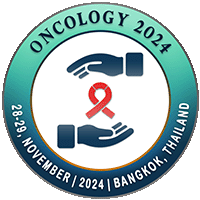
Rodrigo Ricardo Sandoval Valencia
Baca Ortiz Pediatric Hospital, MexicoTitle: Cancer Immunotherapy: Role of the Immune System in Malignant Transformation
Abstract
The immune system represents the body’s major defense and performs its function by recognizing specific antigens via receptors in the cell membrane. The immunoedition supports cancer cells are influenced by the immunological environment in which they develop and has three phases: recognition, equilibrium and elimination. The elimination phase represents the original concept of immune surveillance, in which the innate and adaptative immune systems work together to stop the growth of cancer cells and destroy them before they become clinically evident. If this phase is successfully performed and the tumor is eradicated, cancer immunoediting process would be complete without the need to progress to the subsequent phases. The equilibrium phase is an intermediate state of the immune response to cancer cells. It is probably the longest stage of the process; in some individuals may even extend throughout life. In this phase, the immune system coexists with tumor cells in a dormant state; however, there is the possibility that neoplastic cells may reactivate their latent capacity for growth as recurrent tumors or distant metastases. The moment, in which tumor cells are in an appropriate environment, they undergo a series of genetic modifications, which increases its resistance to the immune system, leading to the next processing stage. The escape phase represents a failure of the immune system in eliminating or controlling neoplastic tissue, thus allowing a continuous growth of the cells without adequate control. Similarly, chronic inflammation contributes to malignant transformation by acting as a promoter of genetic mutations that give neoplastic cells the ability to proliferate without control, while allowing them to develop mechanisms to evade recognition by immune cells. Immunotherapy emerges as a promising treatment modality against neoplasms that do not respond adequately to conventional treatment, while offering the possibility to reduce the adverse effects associated with conventional treatments.
Biography
TBA

